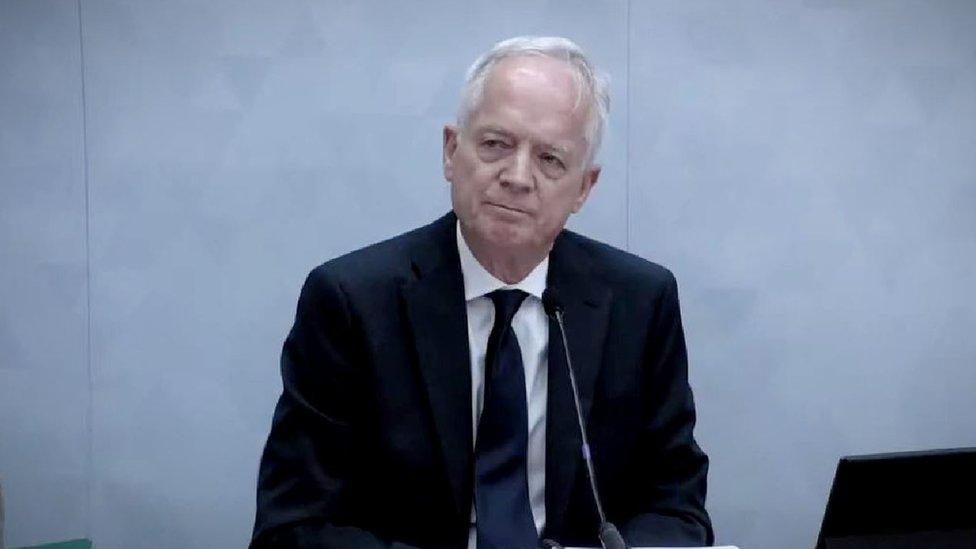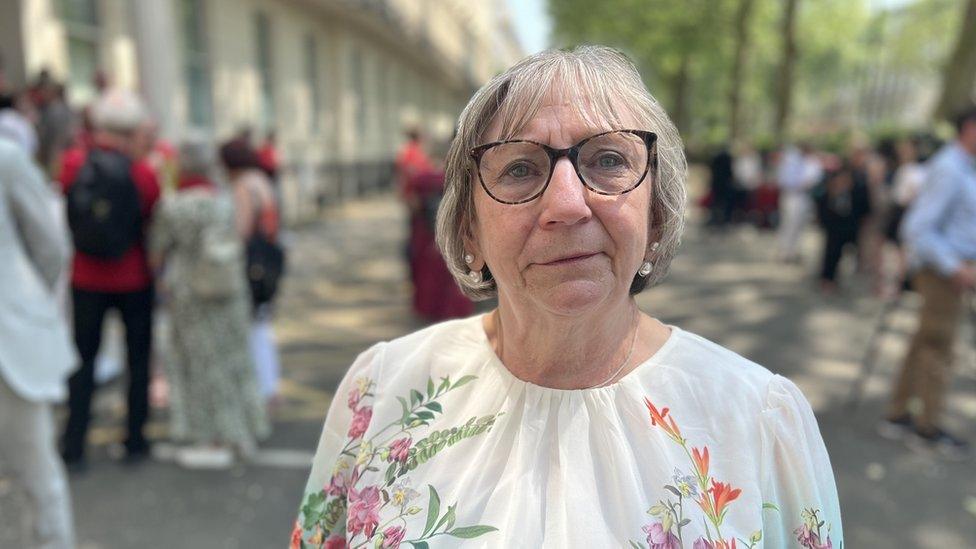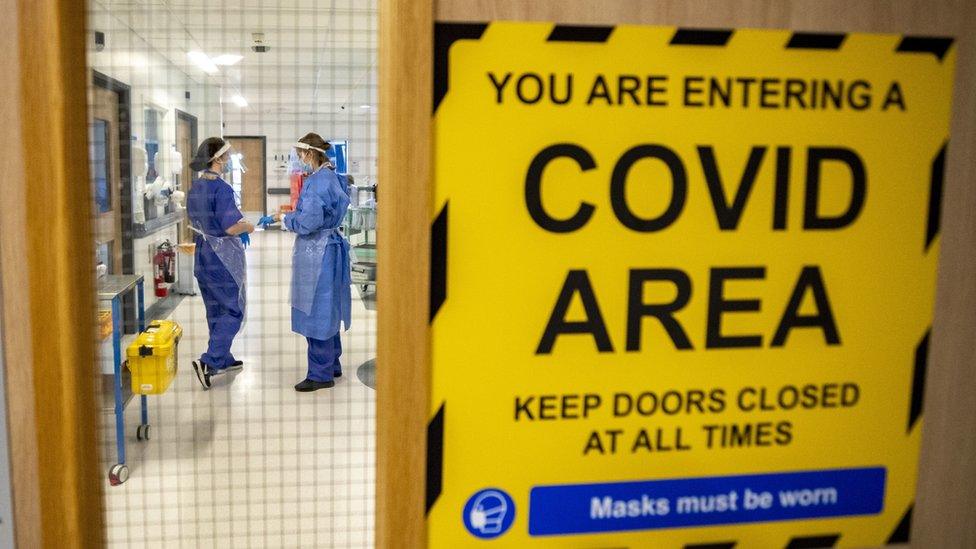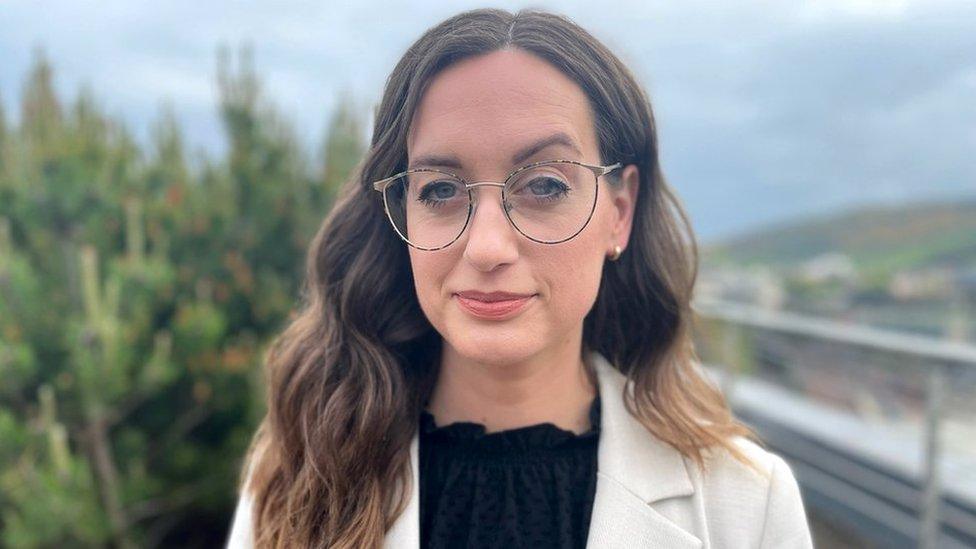Scottish Covid inquiry: Families condemn 'shameful' first day
- Published

Controversy arose over the selection of Dr Ashley Croft as an expert due to reports of vaccine-scepticism
Bereaved families have described the first day of the Scottish Covid-19 Inquiry as "shameful and shambolic".
Campaigners criticised how the inquiry heard from Dr Ashley Croft, a consultant in public health accused of vaccine-scepticism.
They also condemned laughter during proceedings and a lack of respects paid to those who had died from the virus.
Dr Croft defended his record and maintained he did not hold views that had been "debunked".
The public gathering, held in Dundee, was the first meeting of the probe into Scotland's response to the global health crisis.
Funded by the Scottish government, the inquiry has faced a number of delays including the resignation of chairwoman Lady Poole.
And last week BBC Scotland revealed that it has so far cost nearly £8m.
Dr Croft was commissioned to write a report, external on the scientific and medical understanding of Covid-19, as it existed in late 2019 and as it developed during the pandemic.
The report concludes that vaccines "reduce, or probably reduce" the number of people who get the virus and suffer serious disease.
But he said it "remains unclear if Covid vaccinations resulted in fewer deaths".
Dr Croft also said children "were not ever at risk of severe disease" from Covid.
He has been criticised in the press for his 2019 report, external which makes a link between the measles, mumps and rubella (MMR) vaccination and autism.
The connection was first made in Dr Andrew Wakefield's now discredited 1998 study - studies have overwhelmingly found no link since.
'I accept it has been debunked'
Questioned by Stuart Gale KC, Dr Croft was asked whether he had the "requisite qualifications" to advise the inquiry.
Dr Croft said he did and added he was an independent "educated and self-educated observer".
He was also asked if he agreed with views about links with autism and MMR vaccinations.
Dr Croft replied: "Not at all, I accept it has been debunked and has no credence."
Margaret Waterton, who lost her mother and husband to Covid-19, said Dr Croft was "not an expert" and had not fully refuted the suggestion that he held discredited views.

Margaret Waterton attended the UK's Covid Inquiry along with other member of the Scottish Covid Bereaved Group
Mrs Waterton is among campaigners who have attended the ongoing UK Covid Inquiry.
She said: "Dr Croft had ample opportunity to set out explicitly clearly what his findings were, what his beliefs were, what his opinions were and that didn't happen.
"What we're being expected to believe is that that is the best that Scotland has to offer from its scientific community, public health community from its epidemiological community, and that I believe is far from the truth."
Aamer Anwar, the lead solicitor for the Scottish Covid Bereaved group, said families were promised they would be "front and centre" of the public inquiry.
However campaigners said the Scottish inquiry, chaired by Lord Brailsford, was not up to the "gold standard" of the UK one.
They raised issues including "incorrect terminology" in Dr Croft's contribution and "disrespectful" laughter during the proceedings.
The group also took issue with the time devoted to examining Dr Croft's CV, saying it "cast doubt on the robustness of this inquiry".
'Deeply disrespectful'
Mr Anwar added: "It is deeply disrespectful that the inquiry started today without even paying their respects to those who lost their lives to Covid.
"It is shameful and retraumatising for the bereaved to see this inquiry teetering once more on the edge of a cliff with an embarrassing and shambolic start."
A spokesperson for the Scottish Covid Inquiry said Dr Croft was selected as an expert due to his knowledge of the context of the virus in the UK.
They said: "He was also chosen because he has undertaken and published extensive research on a wide range of public health issues including issues relating to Covid-19.
"The views expressed in his report are his own professionally-informed opinions.
"The contents of the report, in the same way as any other evidence received by the inquiry, does not in any way pre-empt the eventual conclusions and recommendations the inquiry will make."
Dr Croft will continue his contribution at the inquiry on Thursday.
- Published18 July 2023

- Published23 May 2023
